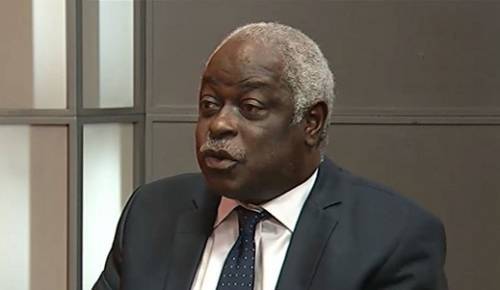The worrisome mind is anathema to the mind of Chist. The mind that is fretful and full of anxiety is a mind that does not glorify God. The worrisome mind is the mind that does not trust God. It is the mind that does not believe that God is God. It is the mind that does not have faith in God. It is the mind that is not fed on the word of God. It is the mind that is not built on the rock of God’s word.
Paul says:
Be anxious for nothing, but in everything by prayer and supplication, with thanksgiving, let your requests be made known to God; and the peace of God, which surpasses all understanding, will guard your hearts and minds through Christ Jesus. (Philippians 4:6-7).
(NKJ)
Don’t be anxious about anything. Have you told God about it? Then you can relax. Look at the case of Hannah. She was all hot and bothered, but after she prayed about her barrenness in the temple, she went her way and was no longer sad. (1 Samuel 1:12-18)
We go to parties and have a few drinks so we can be out of our minds.
Jesus says:
“I say to you, do not worry about your life, what you will eat or what you will drink; nor about your body, what you will put on. Is not life more than food and the body more than clothing? …Which of you by worrying can add one cubit to his stature?” (Matthew 6:25/27).
The doubtful mind
Jesus says:
“Seek not ye what ye shall eat, or what ye shall drink, neither be ye of doubtful mind.” (Luke 12:29).
The doubtful mind is anathema to the mind of Christ.
“Love never gives up, never loses faith. (1 Corinthians 13:7).
The doubtful mind gives up. It does not believe the testimonies of God. It says: “God, if only you would do it just one more time.” It does not believe God’s promises.
In the doubtful mind, the worries of this world choke the word of |God and render it powerless.
Jesus says:
“The one who received the seed that fell among the thorns is the man who hears the word, but the worries of this life and the deceitfulness of wealth choke it, making it unfruitful.” (Matthew 13:22).
The worries of this life choke the word. They strangulate the word. They make the word of God unproductive in our lives.
Peace and rest are evidence of God’s presence in us. When we are exhausted or anxious, it is difficult to hear God clearly. Therefore. be still and know that God is God.
“Jesus says to Martha:
“You are worried and troubled about many things. But one thing is needed, and Mary has chosen that good part, which will not be taken away from her.’” (Luke 10:41-42).
You are worried about too many things, whereas all you need to do is concentrate on the word of God.
Casting all your care upon (Jesus), for He cares for you. (1 Peter 5:7).
Jesus Himself says:
“Come to Me, all you who labor and are heavy laden, and I will give you rest. Take My yoke upon you and learn from Me, for I am gentle and lowly in heart, and you will find rest for your souls. For My yoke is easy and My burden is light.” (Matthew 11:28-30).
The peaceful mind
The mind of Christ is a mind at peace. “For (Jesus) Himself is our peace.” (Ephesians 2:13). The peaceful mind belongs to he whose heart is set on the Lord. The psalmist says:
“My heart is fixed, O God, my heart is fixed: I will sing and give praise.” (Psalm 57:7).
The heart that is fixed cannot be swayed by events. It cannot be swayed by situations and circumstances. It is not easily destabilised by storms and raging waves of the sea. “He shall not be afraid of evil tidings: his heart is fixed, trusting in the LORD.” (Psalm 112:7).
Isaiah concurs:
You will keep him in perfect peace, whose mind is stayed on You, because he trusts in You. Trust in the LORD forever, for in YAH, the LORD, is everlasting strength.” (Isaiah 26:3-4).
Mothers have to be very careful. A lot of mothers lose their faith if something bad happens to their children.
The spiritual mind
The mind of Christ is the spiritual mind. Paul says:
“To be spiritually minded is life and peace.” (Romans 8:6).
To be spiritually minded is to be open to those feelings that the Holy Spirit produces and be subject to His leadings. The spiritually-minded can easily be in the spirit and remain there without being distracted.
Some say, “I can’t pray for any length of time.” This is because we are not spiritually minded. Our senses are not exercised to dwell on spiritual matters. Even when we pray, all our prayers are about the flesh. But if we are spiritually minded, we esteem spiritual things. We appreciate the beauty of holiness. We hunger and thirst for righteousness.
The carnal mind
The carnal mind is anathema to Christ.
To be carnally minded is death; but to be spiritually minded is life and peace. Because the carnal mind is enmity against God: for it is not subject to the law of God, neither indeed can be. (Romans 8:6-7).
The carnal mind is the mind that follows the propensities and inclinations of the flesh. It is the mind that thinks sex, sex, sex. It is the mind filled with vain imaginations. It is the mind that dwells on the vainglories of this world. It is the mind that can only be appealed to by what is advantageous to itself. It is the greedy mind: the lustful mind. It is the mind that is set upon the things that are in this world. It is the mind that is set upon riches. It is the mind that seeks pleasure and is devoted to pleasing the flesh:
She who lives in pleasure is dead while she lives. (1 Timothy 5:6).
The fleshly mind
The fleshly mind is the antithesis of the spiritual mind. It is not the mind of Christ.
Those who live according to the flesh set their minds on the things of the flesh, but those who live according to the Spirit, the things of the Spirit. (Romans 8:5).
Col 2:18
18 Let no one cheat you of your reward, taking delight in false humility and worship of angels, intruding into those things which he has not seen, vainly puffed up by his fleshly mind. (Colossians 2:18).
The fleshly mind is vain. Paul says:
“This I say therefore, and testify in the Lord, that ye henceforth walk not as other Gentiles walk, in the vanity of their mind.” (Ephesians 4:17).
The mind, being the head, is supposed to govern the flesh. But in the fleshly mind, the flesh governs the mind.
Many women have fleshly minds. It is all about makeup, hairstyles, jewelry, perfumes, and snazzy outfits.
Peter counsels:
“Do not let your adornment be merely outward — arranging the hair, wearing gold, or putting on fine apparel — rather let it be the hidden person of the heart, with the incorruptible beauty of a gentle and quiet spirit, which is very precious in the sight of God. For in this manner, in former times, the holy women who trusted in God also adorned themselves, being submissive to their own husbands, as Sarah obeyed Abraham, calling him lord, whose daughters you are if you do good and are not afraid with any terror.” (1 Peter 3:3-6)
Who is the “oga pata pata?” Is it your mind or your body? Can you resist adherence to the sensuous principle? If the answer is “No!,” then you have a fleshly mind.
The sound mind
The sound mind is the mind of Christ.
Do you doubt the grace of God? Do you doubt the mercy of God? Do you feel it applies to others but not to you? Are you fearful? Then you do not have a sound mind.
God has not given us a spirit of fear, but of power and of love and of a sound mind.” (2 Timothy 1:7).
A sound mind is well-balanced and under the divine influences. In this regard, a sinner does not have a sound mind. It is said of the Prodigal Son:
“When he came to himself, he said, ‘How many of my father’s hired servants have bread enough and to spare, and I perish with hunger! ‘I will arise and go to my father, and will say to him, “Father, I have sinned against heaven and before you, and I am no longer worthy to be called your son. Make me like one of your hired servants.’” (Luke 15:17-19).
He looks back and says: “I must have been out of my mind.” “I must have been out of my mind.”
That means he was out of his mind when he engaged in riotous living. Indeed, the whole philosophy of what some call entertainment is to make sure we are out of our minds.
We go to parties and have a few drinks so that we can be out of our minds and do and say things that we would not have said if we were in our right minds. We take drugs so that we can be out of our minds. We watch certain films (like horror films) so we can be out of our minds.
Within the context of the text, the sound mind is the mind that is not afraid or fearful. It is a mind that is sober and not easily excited. It is a mind not easily given to anger. It is a mind that is not captive to lustful passions.

![[Devotional] IN HIS PRESENCE: Stability can only be found in Christ](https://thenewsguru.ng/wp-content/uploads/2023/02/Screenshot-2023-02-21-at-5.48.27-AM.png)
![[Devotional] IN HIS PRESENCE: No Christmas without “Christ”](https://thenewsguru.ng/wp-content/uploads/2021/12/Screenshot_20211202-092925.png)
